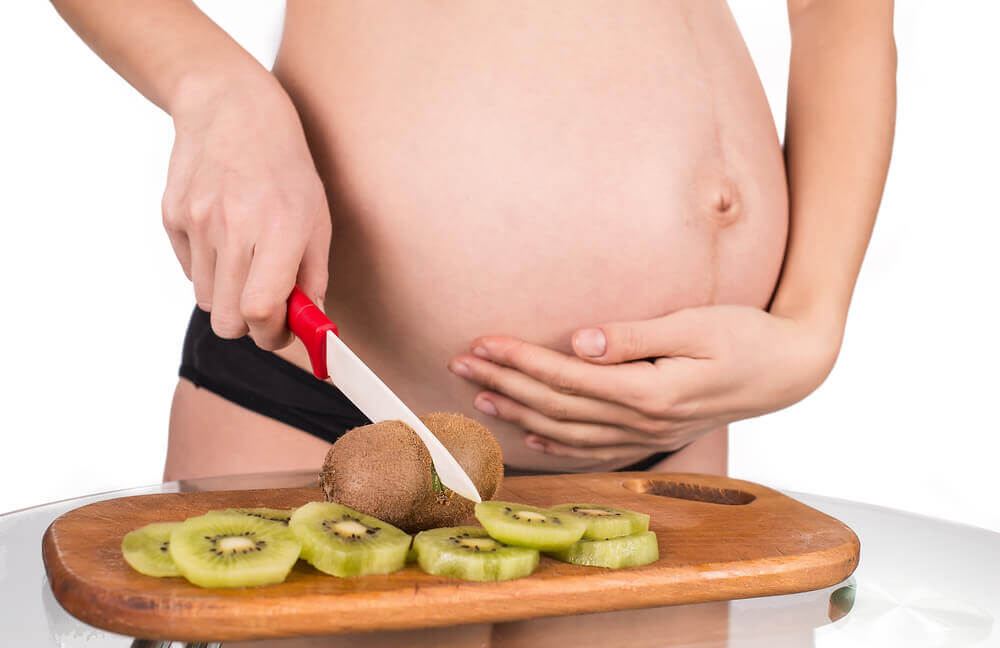Lack of Appetite in Pregnancy

Women fear weight gain the most when they think about pregnancy, but a lack of appetite is more common than we think. However, there are reasons for this and there are ways to cope with it and ensure we are eating what our bodies and our babies need.
It may be that just after finding out the big news, we aren’t even able to stomach walking past our favorite restaurant. Our fear is then replaced with: I am not hungry and I need to eat for two.
During the 40 weeks of pregnancy, we experience different symptoms and sensations. Not only do we feel the baby’s hiccups or other movements inside our bellies. Also, the hormones and the changes that your body makes can affect your eating habits.
Lack of appetite in pregnancy… Why can’t I eat?
Each woman is different and that’s why each pregnancy is different. You may be craving and eating strange combinations of food like jelly and lentils. Maybe you’re the one that doesn’t notice the changes. But you don’t need to worry if it’s you suffering from lack of appetite during pregnancy as it’s most likely to be because of natural causes.
Reasons for lack of appetite during pregnancy can vary from one extreme to another. Over nine months, we experience so many different physical, chemical, and emotional changes.
Number one, hormones

The so-called pregnancy hormone, human chorionic gonadotropin (HCG), is only found in our blood during pregnancy and is responsible for causing nausea and vomiting. These ailments are likely to be the main causes of poor appetite in pregnancy, especially during the first trimester.
HCG also prompts the production of other hormones, such as estrogen and progesterone. The latter can also be a factor when considering the lack of desire to eat, as it’s known to slow down the digestion process.
Changes inside and out
When the body prepares itself to host a baby, the muscle structure of the stomach starts to relax. This is another reason why we may suffer from poor appetite during pregnancy. General discomfort and fatigue can also affect it.
Additionally, the digestive system slows down between the second and third trimesters. The pressure against the small intestine caused by the growth of the uterus and the size of the fetus can also slow down digestion, which in turn can affect your desire to eat.
Some women suffer from constipation or gas which generates gastric discomfort and slow digestion. This can also decrease the desire to eat food. Heartburn can also cause us to lose our appetites.
Summer months
We feel the heat more when we carry another person inside us. If we factor in that part of our pregnancy may fall during the summer months and warmer weather, it’s likely that we won’t want to eat.
Similarly, we may be more likely to suffer from conditions caused by seasonal changes such as Spring fatigue. That “slump” we feel at the turn of Spring can cause symptoms such as fatigue.
When it affects emotions
All the hormonal changes we experience make us more sensitive. If we factor in the stress and anxiety we experience when waiting in anticipation for our newborn to arrive, pregnant women can suffer from a plethora of emotions.
This emotional flurry can be a psychological reason behind our lack of appetite. Mood swings can also make us want to avoid our favorite meals.
What to do when you lose your appetite during pregnancy?
As you can see, most causes are due to normal and natural reasons. Therefore, there are simple ways to cope with it so that we can enjoy our pregnancies and the joys of eating, without feeling stressed or shocked.
First, see a doctor
The first thing we should do is see a doctor who can rule out other important factors. You can do simple medical tests that will check that the mother and baby are getting the correct amount of vitamins and minerals necessary for good health.
The doctor can also determine if you need anything specific to supplement your diet. It’s important to remember that at this stage we need to be more aware of what we are eating. So it’s best to follow the advice of a specialist.
Slowly but surely
Eating little and often is ideal. We recommend eating something light every two and a half to three hours. You need to prepare your stomach so you don’t overeat. It can also help to activate digestion and metabolism, as well as avoiding acidity.
If you suffer from morning sickness, it’s recommended that you keep some bread or crackers by your bed to curb the sickness, which will help you get up.
Do’s and don’ts

Learn to identify the foods that are causing you the most discomfort, remove them from your shopping list and avoid them when eating out. Also, try to identify the ones that you can tolerate, that do not cause repulsion or bloating, and include them in your diet.
Make sure they are natural or unprocessed foods. The obvious ones being heavy, salty foods with lots of sauce, saturated fats and fried foods. The decisions you make regarding your diet in the first few months are vital for overcoming your own mistakes.
You may be interested: Pilates During Pregnancy: Is it a Good Idea?
Fruit and vegetables
Your diet needs to be filled with plenty of fruit and vegetables. They provide the most nutrients, cause the least discomfort, and provide the fluids that meet your body’s needs.
There’s a huge variety of legumes and vegetables. So there are no excuses for excluding them from your diet. Having a piece of fruit is the best option as a snack. You can eat them on the go; they’re an energy booster and are high in fibers, which helps improve digestion.
Plan ahead
It’s a good idea to make a weekly meal plan, or at least prepare a daily one the evening before. So when you get up, you’ll know what you’ll eat as snacks, for breakfast and for the rest of the day.
Make a good breakfast, eat less at lunch and eat dinner during the cooler hours of an evening. Always carry a light snack to avoid not eating at all or buying junk food. Try to eat something every three hours, even if you have no appetite.
Prepare any meals that can be refrigerated. Avoid overly complex recipes because it’s likely that the smell will upset you. Vary your meals, look for different ways to prepare food so you don’t get bored of eating them.
Stay hydrated
Your doctor will tell you to keep well-hydrated during pregnancy, to maintain well-functioning kidneys and avoid fluid retention. This is also a good way to tackle lack of appetite in pregnancy.
Always choose water, herbal teas, and juices low in sugar. Also, if you’re suffering from overheating during your pregnancy, try to incorporate the following options into your meals and snacks: gazpacho or smoothies that use plenty of vegetables.
Avoid a sedentary lifestyle

Walking, practicing yoga, or doing some low-impact exercise will help your digestive system work better. In addition, the correct postures when sitting and eating also help the digestion process. Exercise usually boosts appetite, something that you need to deal with during pregnancy.
Of course, it’s not about over-exercising either. Respect and value your moments and days of rest. When lying down, it’s preferable to be half-seated, not fully reclining, to avoid reflux and a burning sensation in the stomach.
You may be interested: Four Ways to Exercise During Pregnancy
Final recommendation
It’s important to remember that your body is undergoing natural changes that are necessary for the proper development of your pregnancy and baby. The sickness that you’re faced with during the first trimester that prevents you from enjoying food, passes quickly. You may come out of the first trimester with a “fresh” appetite, that needs to be controlled with good eating habits.
All cited sources were thoroughly reviewed by our team to ensure their quality, reliability, currency, and validity. The bibliography of this article was considered reliable and of academic or scientific accuracy.
- Alemany-Garcia, Cristina, and A. Molinero. “Factores que influyen sobre el apetito: revisión bajo un prisma evolutivo.” Rev Divulg e Investig en Ciencias Nat. 2 (2014): 1-8.
- Guerrero, Maria de las Mercedes Izquierdo. Estudio de hábitos alimentarios y conocimientos nutricionales en embarazadas de distintas áreas de salud de la Comunidad de Madrid. Diss. Universidad Complutense de Madrid, 2016.
- Manakova, E. “Supresores del apetito en el embarazo.” Neuro Endocrinol Lett 33 (2012): 179-82.
This text is provided for informational purposes only and does not replace consultation with a professional. If in doubt, consult your specialist.








